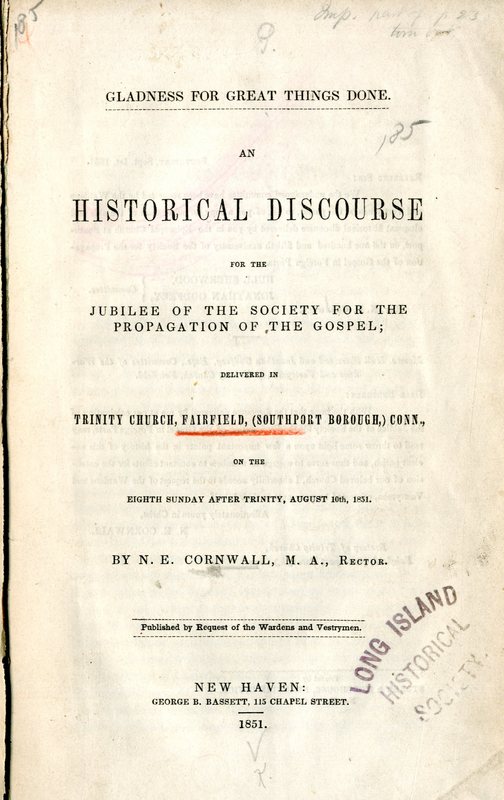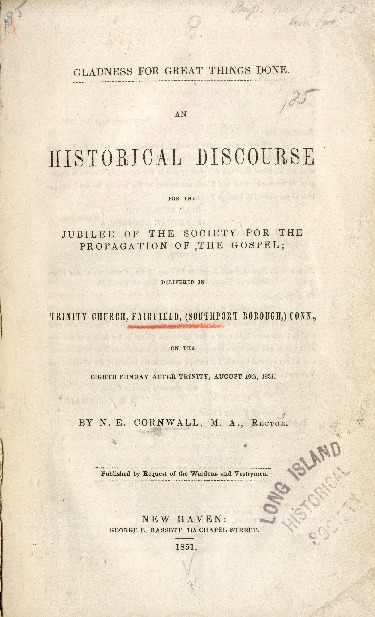The United Society for the Propagation of the Gospel (USPG) is a 300-year-old Anglican missionary organisation, formed originally as the Society for the Propagation of the Gospel in Foreign Parts (SPG) in 1701.
Around the start of the 18th century, Henry Compton, Bishop of London, requested the Rev. Thomas Bray to report on the state of the Church of England in the American Colonies. Bray reported that the Anglican church in America had "little spiritual vitality" and was "in a poor organizational condition". The society was authorised by Convocation and incorporated by royal charter. In 1701, King William III issued a charter establishing the SPG as "an organisation able to send priests and schoolteachers to America to help provide the Church's ministry to the colonists". The new society had two main aims: Christian ministry to British people overseas; and evangelization of the non-Christian races of the world.
The society’s first missionaries started work in North America in 1702 and in the West Indies in 1703. Its charter soon expanded to include "evangelisation of slaves and Native Americans". By 1710, SPG officials stated that "conversion of heathens and infidels ought to be prosecuted preferably to all others". In the American colonies, the Anglican church was competing with Congregational churches in New England. Especially after the Great Awakening, SPG missioners had to compete with numerous Baptist and Methodist preachers. By the time of the American Revolution, the SPG had employed about 300 missionaries in North America. It soon expanded to Australia, New Zealand and West Africa. The SPG was also important in the establishment of the Episcopal Church in the United States of America after the revolution.
Through a charitable bequest received in 1710, aimed at establishing Codrington College, the SPG became a major slave owner in Barbados in the 18th and early 19th centuries, employing thousands of slaves on the Codrington Plantation, many of whom died there in terrible conditions and from overwork and cruelty. During the February 2006 meeting of the General Synod of the Church of England, bishops voted unanimously to apologise to the descendants of slaves for the church's involvement in the slave trade. The Revd Simon Bessant confirmed, in a speech before the vote, that the Society for the Propagation of the Gospel in Foreign Parts had owned the Codrington Plantation.
The current volume concentrates primarily on the Society' history in Connecticut.
http://en.wikipedia.org/wiki/USPG
Published by request of the wardens and vestrymen.
Includes bibliographical references

